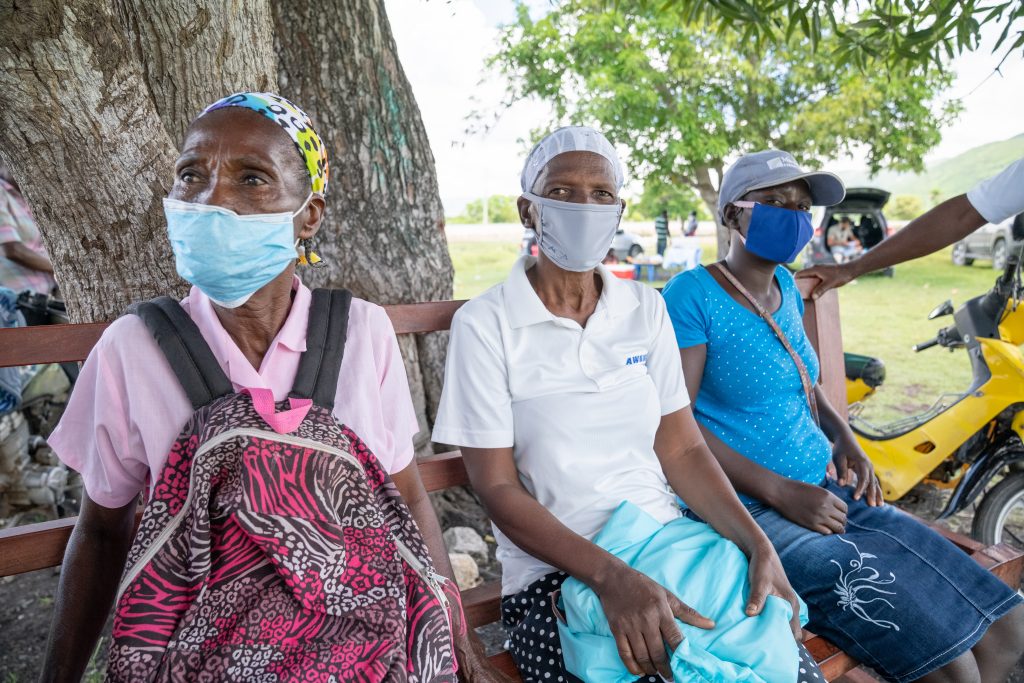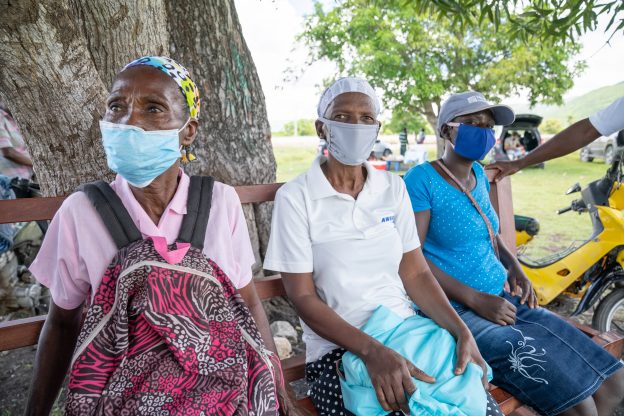
As of the beginning of May, we have seen a surge in COVID-19 cases throughout Haiti. On May 14, the Ministry of Health announced that the national laboratory discovered two new variants from Brazil and the United Kingdom that have been found in Haiti. Unfortunately, the Haitian population has not been as resistant to the new variants as it seemed to be when COVID-19 first appeared in Haiti in March 2020.
Thankfully, COVID-19 testing is becoming more available and accessible in Haiti. Hospitals have recently been overwhelmed with treating COVID-19 patients, and lack beds and oxygen, which is already not readily available in Haiti. Hospitals are having to turn down patients with less severe cases and sending them home without treatment.
Meanwhile, as cases continue to rise, Haiti’s government issued a state of emergency asking people to practice social distancing. A national curfew has been placed between the hours of 10 pm to 5 am. Social gatherings are banned, and wearing masks in public is now mandatory.
Despite all of these regulations in place, the majority of the population isn’t adhering to them, not due to a lack of desire but a lack of means. On the bright side, the Haitian government has accepted 130,000 AstraZeneca doses through COVAX that will be facilitated by the Pan American Health Organization to arrive in Haiti this month.
In addition to the AstraZeneca vaccine, Haiti’s Ministry of Health and local partners are working together to secure more doses for the country. C2C has been a big proponent of advocating for a one-dose vaccine option like the Johnson & Johnson vaccine for its cost efficiency and lower risk of a dropout rate in comparison to a 2-dose vaccine option.

Dr. Wilnick Richard
Chief Medical Officer, C2C
